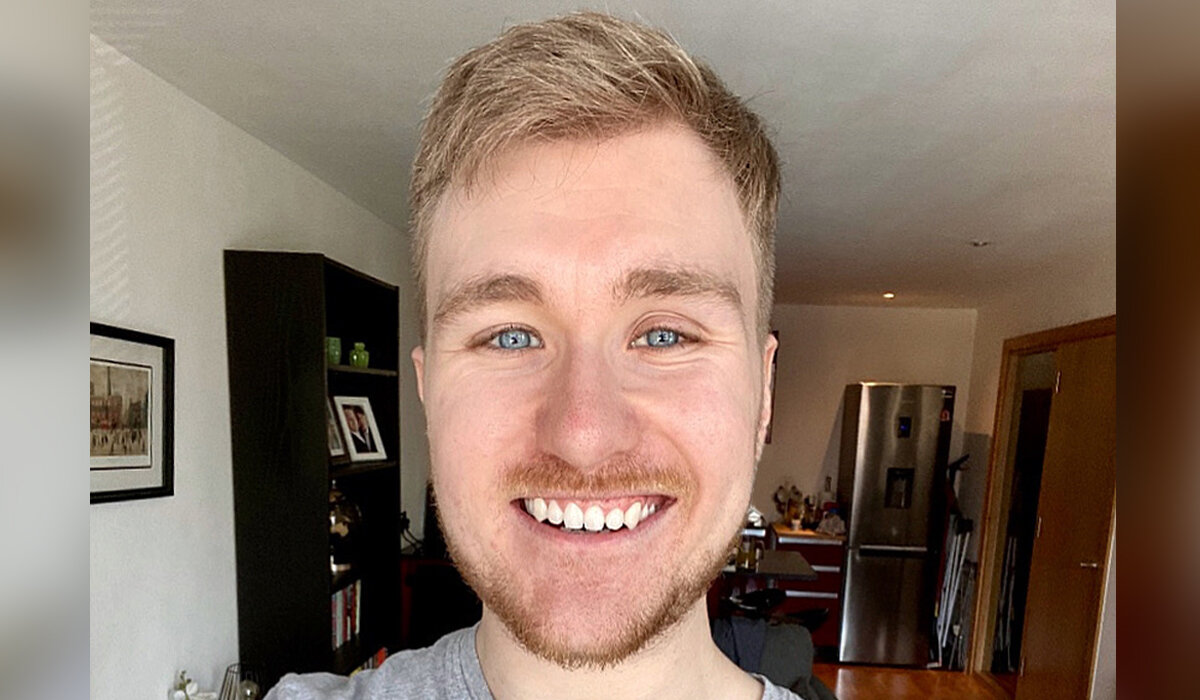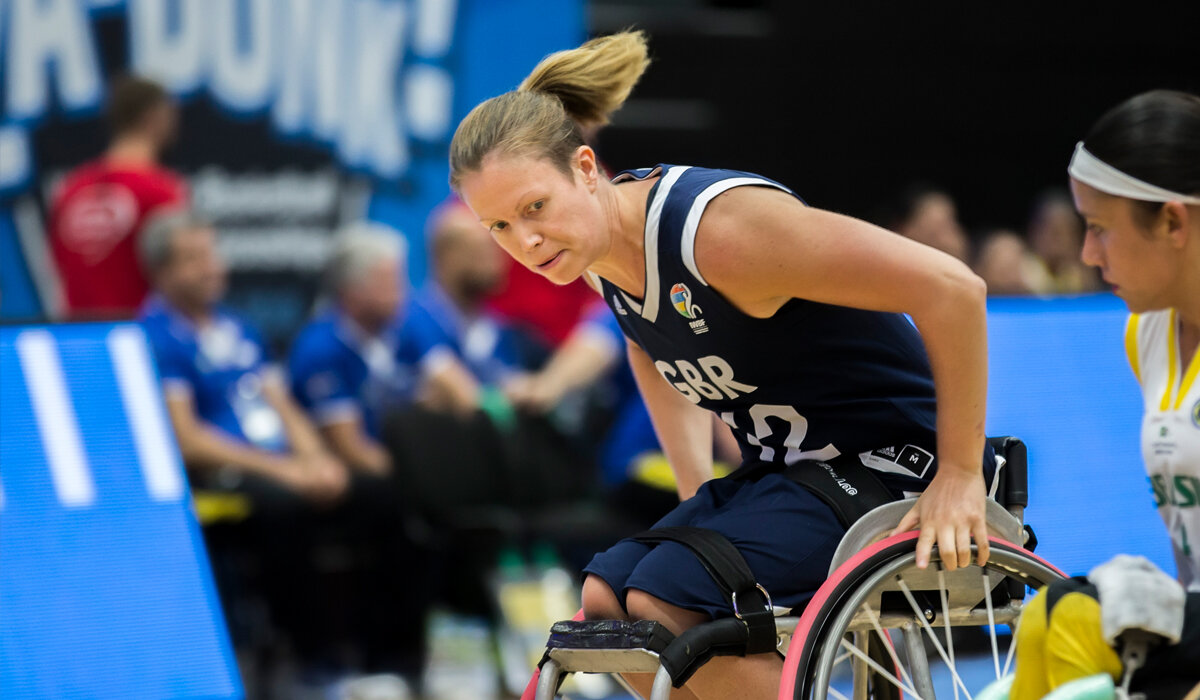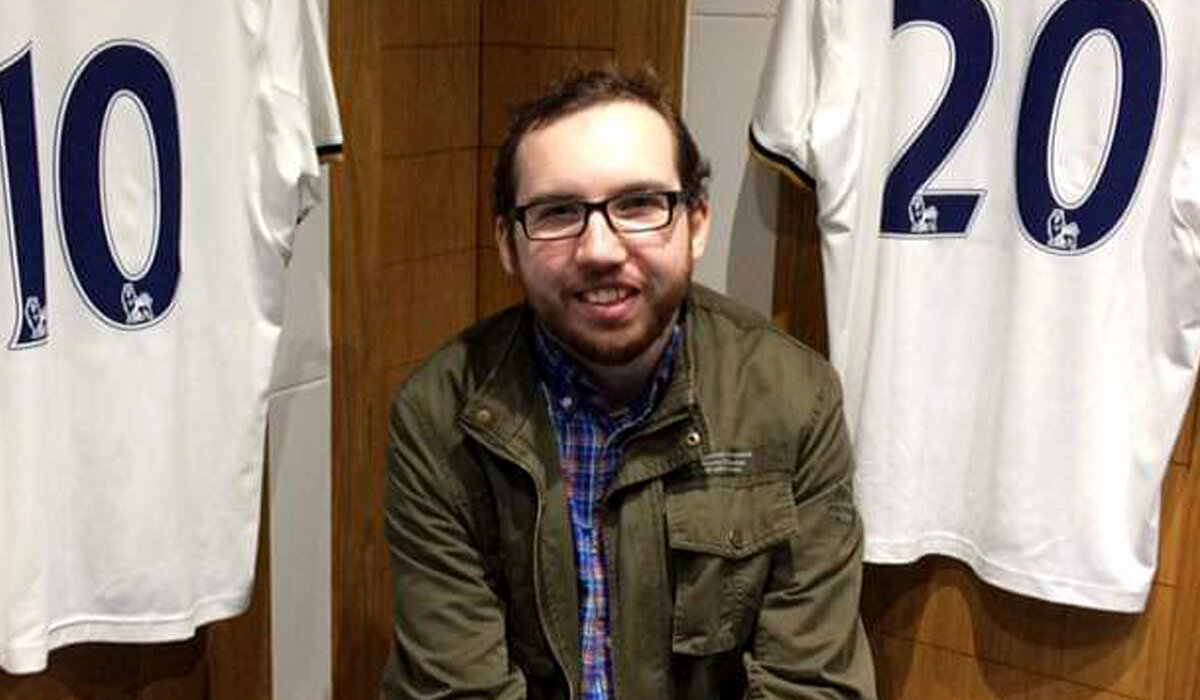
"I sometimes feel I don’t fit people’s preconception of what an autistic person is like."
Andrew Edwards
- on autism stereotypes
Stories from the Spectrum: Andrew Edwards
In this Stories from the Spectrum interview, we spoke to Andrew Edwards.
Meet Andrew Edwards, autistic author, statistician, and a keen football and cricket fan. Andrew’s memoir, I’ve Got a Stat For You: My Life with Autism was published in 2015 by Bennion Kearny and sold over 1,100 copies. Andrew has also written A Vision of Exercise, which explores his relationship between autism and physical health.
We chatted to Andrew more about his memoir and what inspired him to start writing. He also opened up about his experience of eating disorders, and why he feels being autistic is both a gift and a curse…
When were you diagnosed as autistic and what made you seek a diagnosis?
I was diagnosed at four-years-old. At the time, my mother, Hazel Davies, could see that I wasn’t progressing at the same rate as my siblings or achieving the same milestones. For instance, I was non-verbal, my movements weren’t very co-ordinated. I also used to line toy cars up on the floor. It was clear that there was something different about me.
When I was diagnosed as autistic, the specialist said to my mother, ‘go home and watch Rainman’ and ‘it’s likely that your son will be institutionalised.’ But here we are, 31 and a half years later, and I think I’ve proved that specialist incorrect!
I was diagnosed in 1989, and there wasn’t the same knowledge or awareness of autism that there is now. I think it was quite difficult for my mother at the time.
What is being autistic like for you?
To paraphrase the television detective series, Monk, it’s a gift and a curse. On the one hand, I’m very talented with things like data and statistics, but I also have a lot of meltdowns.
I sometimes feel I don’t fit people’s preconception of what an autistic person is like. This can make life difficult when it comes to relationships. People may not realise that I am struggling and the impact that being autistic has on my day to day life. They may see me out and about and think I’m doing fine, but they don’t see me when I’m at home having a meltdown. They can’t equate this with the articulate, outgoing person they see on the outside.
"I sometimes feel I don’t fit people’s preconception of what an autistic person is like. This can make life difficult when it comes to relationships."
People have told me that I’m self-aware, astute, and perceptive, which I think are great attributes to have. Stewart Lee, the comedian, described my memoir as ‘self-aware and very funny’, so I was really pleased with that.
Tell us a bit about your memoir. What was the writing process like and how did it come to be published?
I worked for Manchester United Broadcast television as a broadcast statistician and a senior researcher. I found the job very rewarding, particularly for the first eight years or so. It was a dream job. I was actually only supposed to be there for one day, but I ended up working there for eleven years.
Unfortunately, I was made redundant about six years ago, and the support I received through the NHS was cut, so I was left on my own really. My sister, Melanie (who lives next door to me) really stepped up to help. She essentially became a carer to me – driving me to places during the day and things like that.
I’d always wanted to write my memoir, so Melanie and I would go to the Wrexham library and work on the book together. She helped me express my feelings and emotions and brainstorm ideas, and I would put it in writing. I finished the first draft in about eight to ten months. The memoir covers my life experiences up to the age of 30.
We then started looking for a publisher. We got in touch with the BBC Radio 4 Today programme. They responded to me, and one thing led to another really. In April 2015, I was interviewed by John Humphrys. You can listen to the interview here.
In the interview I spoke about my memoir, and being autistic. The publisher (Bennion Kearny) got in touch with me, after seeing my interview. This happened exactly a year after I was made redundant, which I felt was quite apt.
We ended up selling 1,100 copies. I put a lot of effort into promoting the book, and I ended up selling more copies offline than online. I’m quite a sociable person, so I enjoyed promoting it. I did various free talks about autism in North West England and North Wales, where I spoke about my book.
In the past, you’ve spoken about your experience of mental health and eating disorders. Would you like to talk a bit more about this?
Yes, I think it’s a very under-discussed topic to be honest. I had an eating disorder, but it didn’t become apparent to me until I started volunteering with young autistic people (for a local charity in Wrexham). I recognised a lot of the eating patterns of these young people in myself – either eating too much, eating the same food repeatedly, or eating too little.
I think my eating disorder was very much connected to being autistic. People don’t tend to associate eating disorders with autism. For me, a lot of it is about processing information. For instance, one winter I ended up putting on 10kg, because I was overloading on protein. I felt really guilty, as I felt I had let down my training coach, and not taken their advice. During lockdown, I was able to lose 17kg.
Eating disorders can be quite common among autistic people [Studies suggest that autistic traits are common in people with eating disorders. Different researchers have reported different rates – they may be anything from 4.7 to 22.9%]. This needs to be talked about more. We often hear about obsessive behaviour, meltdowns and routines in connection to autism, but we rarely hear about autism and eating disorders.
I think physical health in general should be discussed more in the autistic community. For me, training and exercise helps me to compartmentalise things. It helps me to manage my autism, and my mental and physical health. I do a lot of running, as well as Strength and Conditioning training, which I find really helpful.
If you could dispel one myth or stereotype about autism, what would it be?
I’d like to break down the stereotype that all autistic people are ‘geeky’ or not particularly sociable. I’m a sociable person and I enjoy mixing with people and seeing friends.
I don’t like computer games, so that’s an autism stereotype I don’t fit. I also enjoy going out and exercising, and I think there’s a myth that autistic people don’t do things like that. I’d like to break down those preconceptions.
I’d also like people to realise that autistic people can be empathetic and self-aware. I want people to know that there are autistic people who are sociable, easy to talk to, and talk about a variety of subjects, just like non-autistic people.
"I’d like people to realise that autistic people can be empathetic and self-aware. I want people to know that there are autistic people who are sociable, easy to talk to, and talk about a variety of subjects, just like non-autistic people."

I’ve Got a Stat For You and A Vision of Exercise are both available on Amazon.
If you shop online with Amazon Smile, our charity will receive a donation at no extra cost to you. Find out more here.
Autism advice and guidance
Take a look at our advice and guidance pages to find support and resources on a range of topics - including advice on getting a diagnosis, mental health, socialising and relationships, and more...
Similar stories

“Diversity of mind is critical both on-screen and off-screen.”
Nick Ransom
- on neurodiversity in film and on TV
Read more

"I am over-sensitive to sensory stimuli, which can be difficult in a lot of aspects of life, not just basketball."
Sarah Hope
- on her experience of sensory differences
Read more

"In times of such difficulty, what football brings is enjoyment, reassurance and a pleasant distraction imbuing us with feelings of comfort and relief."
Jack Howes
- on his love of football
Read more

The Spectrum magazine
Explore one of the UK's largest collections of autistic art, poetry, and prose. The Spectrum magazine is created by and for autistic people, and is available both online and in print.
Read the Spectrum





You are not alone
Join the community
Our online community is a place for autistic people and their families to meet like-minded people and share their experiences.
Join today